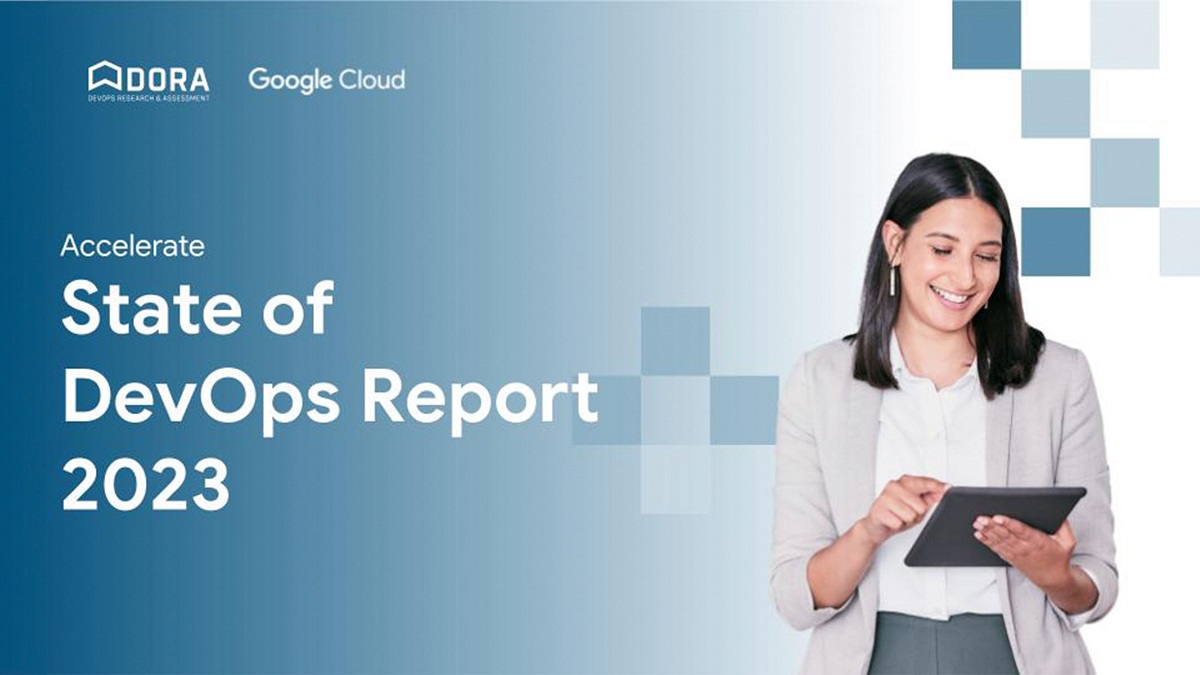A recent survey about DevOps by Google‘s Cloud DevOps Research and Assessment (DORA) team reveals that there’s a growing gap between the top-performing teams and the least successful ones. Also, despite high expectations, the 2023 Accelerate State of DevOps report suggests that AI hasn’t brought significant benefits to development teams just yet.
The research discovered that there is a great deal of excitement surrounding the potential of AI development tools, but it hasn’t become a primary driver of results yet. “Our evidence suggests that AI slightly improves individual well-being measures (such as burnout and job satisfaction) but has a neutral or perhaps negative effect on group-level outcomes (such as team performance and software delivery performance),” the report finds.
This could be due to the fact that AI in this context is still in its early stages. However, this cautious assessment contradicts claims made by companies like GitHub about the transformative advantages of AI-enhanced developer workflows.
The cloud is not a quick fix
Another crucial discovery is that embracing cloud technology doesn’t consistently lead to positive outcomes. “We see strong indicators that public cloud leads to decreased software and operational performance unless teams make use of flexible infrastructure. This finding further promotes the idea that simply ‘lifting and shifting’ (the act of shifting workloads from a data centre to the cloud) is not beneficial and can be detrimental,” said the researchers.
In certain aspects, the specific details within the report may be less significant than the overarching insight it offers. This insight has gone on to develop many years of research and emphasises that the culture within an organisation and its teams has the most significant impact on achieving successful results.
“A healthy culture leads to high levels of employee well-being by reducing burnout, increasing job satisfaction, and increasing productivity,” the researchers state, adding that “employee well-being is not a nice-to-have: it’s foundational to an organization’s overall health and success.”
The research data clearly illustrates these patterns but acknowledges that it’s unfortunate that changing organisational culture remains one of the most challenging tasks.
Main drivers
The main drivers of success for high-performing teams are not the tools, cloud platforms, or programming languages they employ. Instead, it’s about creating software with the end user as a top priority and fostering a culture of low blame and high trust. A user-centred approach doesn’t necessarily involve releasing numerous features; in fact, the report indicates that an excessive focus on continuous delivery might divert the team from meeting users’ actual needs.
An important observation is that fast code reviews are linked to significant improvements in both software delivery and operational performance. Another insight is that teams and organisations tend to perform better when they adopt loosely coupled software architecture.
“We found that quality documentation has a positive impact on an individual’s well-being: it reduces burnout, increases job satisfaction, and increases productivity. We found that some of this impact is because quality documentation increases knowledge sharing,” the researchers observed, outlining that documentation has a solid impact.
Work method and results
The 2023 Accelerate State of DevOps report is derived from data collected from almost 3,000 individuals. Out of these respondents, 30 per cent are involved in development or engineering, 18 per cent in DevOps or Site Reliability Engineering (SRE), 16 per cent in managerial roles and 8 per cent in operations or infrastructure.
The majority of responses, 28 per cent, came from the USA, followed by the UK, India, Canada, and Germany as the next largest groups. The research’s goal is to explore the connection between work methods and results. This includes measuring software delivery effectiveness, the success of the organisation, operational performance, team performance, and employee well-being.
For instance, software delivery is assessed by how often changes are deployed, the time it takes for changes to go from commitment to deployment, the rate of changes causing failures, and the time required to recover from a failed deployment. In this year’s report, a distinct group of software teams has been recognised, which was challenging to distinguish last year.
About 18 per cent of respondents belong to this category, characterised by metrics like a change lead time of under one day and a recovery time of less than one hour. On the opposite side of the spectrum, there are underperforming teams that take between one week and one month to deploy changes and experience a high change failure rate of 64 per cent.
You can download the 2023 State of DevOps Report here.
Isa Muhammad is a writer and video game journalist covering many aspects of entertainment media including the film industry. He's steadily writing his way to the sharp end of journalism and enjoys staying informed. If he's not reading, playing video games or catching up on his favourite TV series, then he's probably writing about them.



































